Rem Offshore Chooses Vard Electro's SeaQ Integrated Bridge for New CSOV Vessel
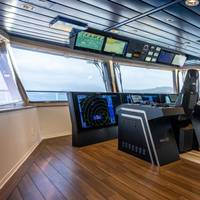
Vard Electro’s SeaQ Integrated Bridge solution is being implemented in the offshore wind sector for the first time, following installation on Rem Offshore’s newbuild construction service operation vessel (CSOV) Rem Power to assist in optimizing environmental performance.“We are making strong investments in new low-emission technologies to cut the environmental impact of offshore wind operations in line with increasingly stringent regulations and requirements from clients, banks and other stakeholders…
KR Upgrades Its Emissions Reporting System
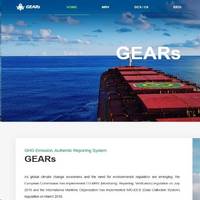
Korean Register said recent upgrades to its greenhouse gas (GHG) Emission Authentic Reporting system (KR GEARs) will enable maritime stakeholders to more easily ensure compliance with GHG regulations in a shorter period.Launched by KR in 2019 to help shipping companies and operators to manage their fleets' GHG emissions data and remain compliant with tightening GHG regulations, KR GEARs has been updated to include a new real-time carbon intensity indicator (CII) monitor, CII simulator…
StormGeo Debuts 'Smart Carbon Intensity Indicator' Tool for Ships
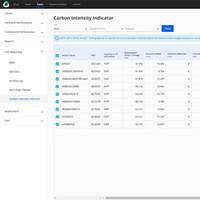
StormGeo launched a new Carbon Intensity Indicator (CII) Dashboard that provides ship operators with the ultimate digital tool for calculating, reporting, and proactively improving the CII rankings of their fleet.The new CII Dashboard is a key addition to StormGeo’s software and services suite, s-Suite where it has been integrated into the s-Insight platform.CII RulesThe CII is an operational efficiency indicator that measures how efficiently a ship transports goods or passengers in grams of CO2 emitted per cargo-carrying capacity and nautical mile based on its Annual Efficiency Ratio (AER).
Shell to Install Kongsberg's JAWS Software on 45 LNG Carriers
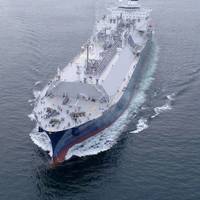
Shell has signed a five-year contract for the installation of Kongsberg's JAWS (Just Add Water System) software on board 45 of the LNG carriers chartered by Shell.These are LNG carriers that already utilize the Kongsberg Maritime K-IMS Information Management System application suite. K-IMS is a web-based solution that gives both ship crews and shore teams continual access to crucial voyage and vessel data. The provision of JAWS as an application within the K-IMS suite renders it instantly available to all K-IMS users.The contract signing follows a successful year-long trial…
Rewrite the Rules: The Path to Zero Emissions
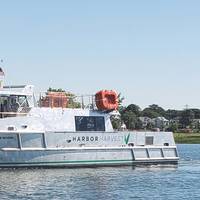
With social media updates and conference agendas addressing the subjects of climate change, emissions reductions and alternative fuels, it’s a wonder we are not climbing the Himalayans in search of the Jedi Master that will provide us with the magic potion. Yoda’s blessing with a calming breath, “You have chosen wisely.”Government emissions intervention started with a move to reduce energy and fuel consumption measured in greenhouse gas (GHG), at a time when the world and our politicians spoke about global warming.
Study: EC Shipping Emissions Study Released
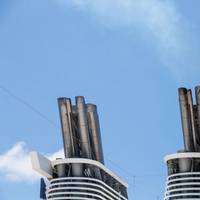
Shipping emissions: International measures needed to cut operational greenhouse gas emissions of existing fleet by 2030 – new studyThe international shipping sector needs to quickly adopt short-term policy measures to cut operational greenhouse gas (GHG) emissions of the existing fleet, according to a new study. The study concludes that only a subset of potential policy options, namely those that mandate changes in how the existing fleet is operated can achieve the significant effect required to meet the sector’s emission reduction objectives.
IMO 2020, IoT & the Enviro Agenda
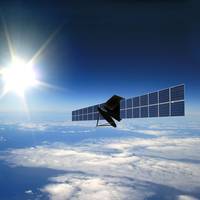
While conservatism is a hallmark of maritime, research from Inmarsat finds that IoT may be helping turn the tech tide by delivering new solutions that ease rather than complicate compliance.With environmental imperatives mounting, shipping’s hesitation concerning new technology has been laid bare in an Inmarsat Research Program report that includes data on how far the industry sees IoT-based solutions as a gateway to sustainability. Directly out the porthole is the IMO 2020 fuel sulfur cap, but further along is 2050 the target to cut GHG ship emissions by 2050.
Rolls-Royce Battery System for Two Offshore Vessels
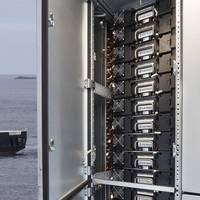
Rolls-Royce Commercial Marine said it has received an order to deliver a battery-powered energy system for two offshore vessels (PSVs) operated by Norway-based Golden Energy Offshore.The delivery includes the SAVe Energy system, which was launched by Rolls-Royce earlier this month. In addition, the two vessels will receive an upgrade of the existing Rolls-Royce ship design engineering package to match the new features. This includes an upgrade of the Dynamic Positioning (DP) system…
IMO/MARPOL Amendments Enter Into Force
Requirements for ships to collect data on their fuel oil consumption entered into force on 1 March. Other important amendments to the International Convention for the Prevention of Pollution from Ships (MARPOL) have also entered into force, covering the classification of garbage, including the addition of a new category of “e-waste”, and amendments to the International Oil Pollution Prevention Certificate. The ship fuel oil consumption data reporting requirements are the latest mandatory requirements aimed at enhancing the energy efficiency of international shipping. The data collection will begin on 1 January 2019 with data reported at the end of each calendar year to the International Maritime Organization (IMO)…
Rolls-Royce, Inmarsat Sign Ink Energy Management Deal
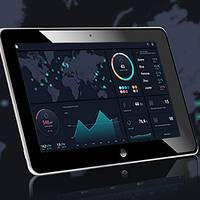
Rolls-Royce and Inmarsat have signed a Letter of Intent (LOI) to have the option to make the company’s Energy Management system available via Inmarsat Maritime’s Fleet Xpress high-speed broadband service. With data collected from a multitude of ship control systems and equipment sensors, Energy Management 2.0 reduces energy consumption and supports environmental compliance as well as allowing for the benchmarking of efficiency against historical performance. Marco Camporeale, Rolls-Royce…
ABB Software Leads to Fuel Savings for Stena Line
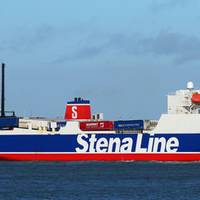
An upgraded vessel control software package is delivering measurable operational efficiency gains to Stena Line for the freight ferry Stena Scotia within a month of commissioning, says ABB, whose DEGO IV advanced speed governor and actuation system onboard has been enhanced so that control over the vessel’s propulsion system minimizes roll and rudder movements, delivering a new way of saving fuel while also improving crew comfort. ABB’s fourth generation DEGO software collates data from sensors monitoring 60 shipboard parameters in real time…
IMO 2020: The Future of Fuel
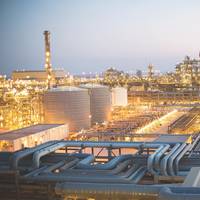
There has been little reaction by way of statements or position papers from marine fuel lubricant manufacturers to the IMO MEPC70 proposals for a global fuel sulfur content cap of 0.5 percent by 2020 but they are fully aware of the implications of the proposed regulations and are taking what could be termed a ‘pragmatic approach’ to fuel regulation compliance. Marine lubricant suppliers have avoided getting involved in the debate as to whether the IMO MEPC70 proposals to reduce permissible marine fuel sulfur content to 0.5 percent or less is good…
ABB’s OCTOPUS for Torvald Klaveness vessels
ABB’s OCTOPUS marine software will be installed on three new Torvald Klaveness vessels to help them meet incoming emissions regulations. The OCTOPUS reporting software is compliant with the IMO Ship Energy Efficiency Management Plan (SEEMP) and supports future European Union Monitoring, Reporting and Verification (MRV) rules. OCTOPUS gathers information from onboard sensors and gives insight into key performance parameters, such as fuel efficiency, allowing Klaveness to optimize fleet-wide performance. The purpose of a SEEMP is to establish a mechanism for a company and/or a ship to improve the energy efficiency of a ship's operation. OCTOPUS aids this process by measuring and displaying important vessel fuel consumption and torque related Key Performance Indicators.
All Eyes on 2020
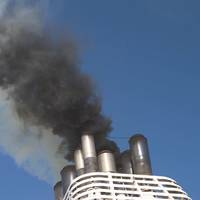
The International Maritime Organization’s proposals to reduce sulfur levels in marine fuels to a maximum of 0.5 percent m/m (mass/mass) by 2020 may prove to be controversial, having met with various responses from major shipping organisations and other bodies. The decision to implement the proposals by 2020 was taken by IMO, the regulatory authority for international shipping, during its Marine Environment Protection Committee (MEPC 70) meeting, which was held in London, UK in October 2016, and represents a significant reduction from the 3.5 percent m/m global limit currently in place.
European Shipowners Welcome IMO Decision on Emission
The 70th session of the Marine Environment Protection Committee (MEPC) of the International Maritime Organization (IMO) concluded today (October 28) with a decision on defined tasks and timelines to reduce greenhouse gas (GHG) emissions from ships. The agreed roadmap complements the decision to have a mandatory global GHG data collection system in place as of 2019. MEPC furthermore decided to have a global 0.5% sulphur limit in 2020 and a Nitrogen Emission Control Area (NECA) in the North Sea and Baltic Sea. “These important decisions demonstrate the global leadership of IMO on regulation of ship emissions", said European Community Shipowners’ Associations (ECSA) Secretary General Patrick Verhoeven.
NYK Steams Ahead
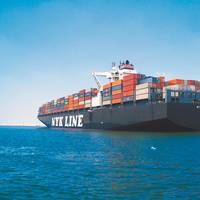
Tokyo-based Nippon Yusen Kaisha (NYK) Group is not only one of the world’s largest ship owners with a diverse fleet of more than 800 ships, it is a growing global maritime logistics powerhouse. Maritime Reporter & Engineering News visited with Yasuo Tanaka, Senior Managing Corporate Officer, Naval Architect, in Tokyo for his insights on the company’s continued efforts to invest in operational efficiency. The story of NYK cannot start without a look at the numbers, because the numbers tell the story in a most impressive fashion.
ABB Launches Torque Monitoring System

ABB has launched a new torque monitoring system called Torductor Marine, which is aimed at optimizing engine and fuel efficiency in the maritime sector. The new offering will fit into ABB’s Marine Software portfolio, which visualizes the data for the onboard crew and can be shared with the ship’s shore-side support team. The launch of Torductor Marine follows on a successful trial aboard Stena Line’s freight ferry MV Stena Scotia, where sensors tracked the performance of the vessel’s engines. Contactless sensors are mounted facing the propeller shaft with a gap of approximately 1.5mm.
MOL Makes Fleet-wide Migration to Fleet Xpress
26 July 2016: Inmarsat (LSE:ISAT.L), the leading provider of global mobile satellite communications services, has announced that its partner JSAT MOBILE Communications has signed an agreement with Mitsui O.S.K. Lines (MOL), one of the world’s largest shipping companies, to introduce the newly-launched Fleet Xpress service across the majority of its car carrier fleet. Existing Inmarsat customer MOL says migrating its car carriers to always-on, high-speed broadband connectivity will be pivotal in its continuing drive towards ‘smarter and greener shipping’ operations. MOL has long been convinced that the environmental performance of its ships offers a competitive advantage.
ABS launches NS Vessel Performance
ABS, a leading provider of classification services to the global marine and offshore industries, today unveiled ABS Nautical Systems Vessel Performance – a comprehensive software solution developed in response to continued demand for tools that improve vessel efficiency, reduce costs and facilitate emissions reporting and compliance. The NS Vessel Performance tool is designed to improve efficiency and control costs through the application of a ship-specific performance model and tracking of key performance indicators (KPIs), while also supporting environmental compliance and reporting, including the European Union’s Monitoring, Reporting and Verification (MRV) regulation for CO2 emissions.
GloMEEP Project Forges Ahead with Train-the-Trainer Workshop
A global Train-the-Trainer workshop on energy efficiency has been delivered in China (23-27 May), preparing the personnel needed to cascade knowledge on energy efficiency for ships and related efforts for mitigation of greenhouse gas emissions from international shipping. The five-day intensive course was organized by the International Maritime Organization (IMO), within the framework of the Global Maritime Energy Efficiency Partnerships (GloMEEP) Project. The workshop was co-hosted by the China Maritime Safety Administration (China MSA) and Dalian Maritime University (DMU). The GloMEEP Project aims to support increased uptake and implementation of energy-efficiency measures for shipping. China is one of the ten Lead Pilot Countries implementing the GloMEEP Project.
Wärtsilä Broadens its Marine Agreement Concepts with Lifecycle Solutions
Wärtsilä broadens its range of marine agreement concepts with Lifecycle solutions - an innovative, comprehensive offering that optimises the efficiency and performance of marine and offshore customers' assets. Wärtsilä Lifecycle solutions consist of three concepts: Optimised maintenance, Optimised operations and Guaranteed asset performance. The Wärtsilä Lifecycle solutions offering also includes Wärtsilä Genius services. Launched in November 2015, Wärtsilä Genius services enables the optimisation of customers' assets in real-time, improves predictability and helps solving of issues with digital solutions. Wärtsilä Services Lifecycle solutions bring a wider supply of services to the agreements portfolio.
GloMEEP Energy Efficiency Project Gets Underway
The first national workshop under the Global Maritime Energy Efficiency Partnerships GloMEEP), Project, which aims to support increased uptake and implementation of energy-efficiency measures for shipping, has been held in Georgia. Georgia is one of the Lead Pilot Countries for the project, which aims to build understanding and knowledge of technical and operational energy-efficiency measures to lead maritime transport into a low-carbon future. The national workshop in Batumi, Georgia (15-17 December), focused on raising awareness of Annex VI of the International Convention for the Prevention of Pollution from Ships (MARPOL), in particular the energy-efficiency regulations in chapter 4.
EU Needs IMO Leadership to Reduce Shipping Emissions
The European Community Shipowners’ Association (ECSA) has reiterated their support for International Maritime Organisation (IMO) as the proper leader of efforts to reduce shipping’ s greenhouse gas emissions at the start of the COP 21 Climate Change Conference in Paris. “We fully support the idea that shipping has to contribute to global efforts to reduce greenhouse gas emissions” commented Patrick Verhoeven, ECSA Secretary General, adding: “EU Member States gave a vote of confidence to the International Maritime Organisation (IMO) in its ability to address as soon as possible and in an effective manner greenhouse gas emissions from international shipping. We believe this is the right approach as it would be the logical continuation of steps already taken at EU level.












